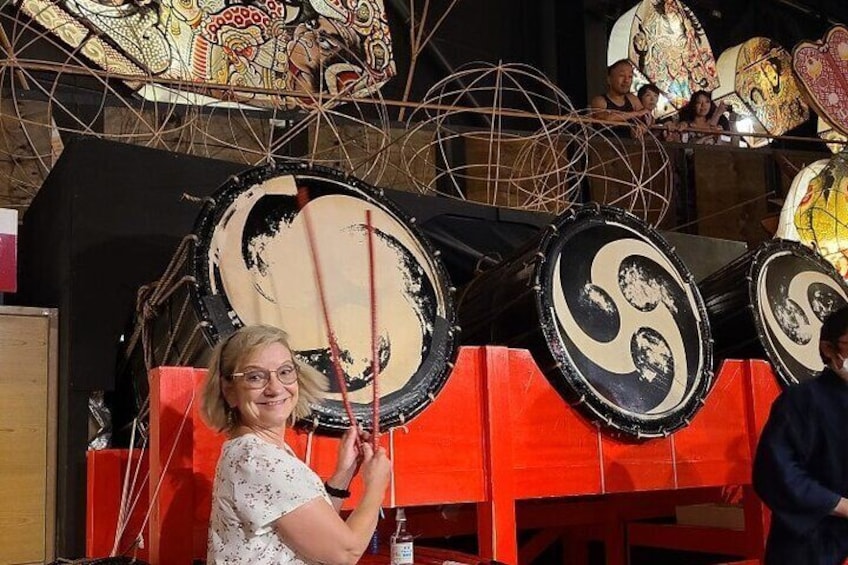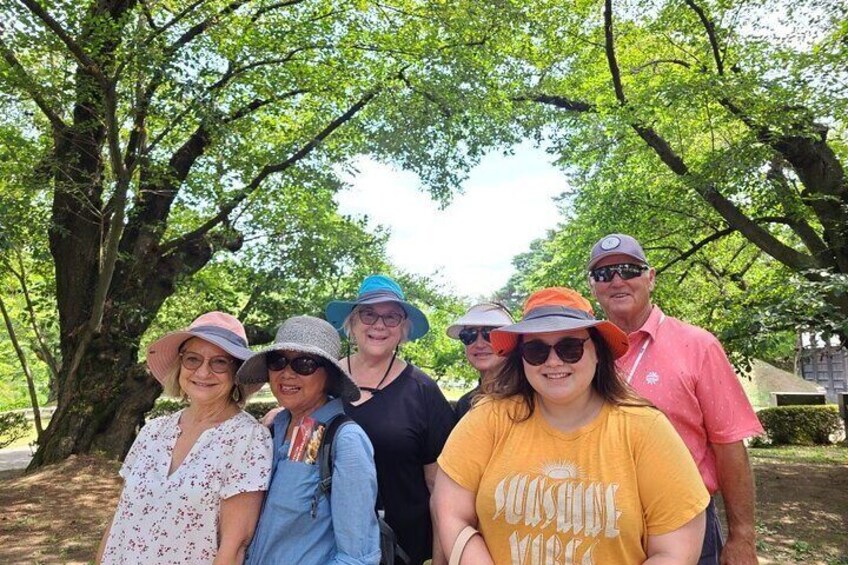




Hirosaki 4hr Private Tour with Government-Licensed Guide
Features
- Free cancellation available
- 4h
- Mobile voucher
- Instant confirmation
- Selective hotel pickup
- Multiple languages
Overview
This value-packed trip with a government-licensed and experienced multilingual tour guide is a fantastic and efficient way to explore Hirosaki!
Set in the shadow of the impressive Mt. Iwaki, the historic town of Hirosaki is said to be the cultural capital of the prefecture. Its semi-rural setting is complemented by beautiful parks and temples, while the various boutique fashion stores, one-room bars, and stylish cafes create an impression of hip culture.
Let us know what you would like to experience and we will customise a four-hour tour that's best for you!
Note1: Please select your must-see spots from a list in the tour information to create your customised itinerary.
Note2: The National Government Licensed Guide Interpreter certification is issued by the Japanese government requires a good knowledge and understanding of Japanese culture and history.
Activity location
- Hirosaki Castle
- 1 Shimoshiroganecho,
- 036-8551, Hirosaki, Aomori Prefecture, Japan
Meeting/Redemption Point
- Hirosaki Castle
- 1 Shimoshiroganecho,
- 036-8551, Hirosaki, Aomori Prefecture, Japan
Check availability
Hirosaki 4hr Private Tour with Government-Licensed Guide
- 4h
- English
Pickup included
What's included, what's not
- Customisable Walking Tour of your choice of 2-3 sites from 'What to expect' list
- Licensed Local English Speaking Guide
- Meet up with guide on foot within designated area of Hirosaki
- Transport fees, Entrance fees, Lunch, and Other personal expenses
- Private Vehicle
- You cannot combine multiple tour groups.
- Guide Entry fees are only covered for sights listed under What to Expect.
Know before you book
- Service animals allowed
- Public transport options are available nearby
- Infants and small children can ride in a pram or stroller
- All areas and surfaces are wheelchair accessible
- Transport options are wheelchair accessible
- Wheelchair accessible
- Suitable for all physical fitness levels
- This is a walking tour. Pick up is on foot.
Activity itinerary
Hirosaki Castle
- 30m
- Admission ticket not included
Tsugaruhan Neputa Mura
- 30m
- Admission ticket not included
Fujita Memorial Japanese Garden
- 30m
- Admission ticket not included
Former Ito Family Residence
- 30m
- Admission ticket not included
Former Umeda Family Residence
- 30m
- Admission ticket not included
Former Iwata Family Residence
- 30m
- Admission ticket not included
Ishiba Residence
- 30m
- Admission ticket not included
Ōtemon Square
- 15m
Location
Activity location
- Hirosaki Castle
- 1 Shimoshiroganecho,
- 036-8551, Hirosaki, Aomori Prefecture, Japan
Meeting/Redemption Point
- Hirosaki Castle
- 1 Shimoshiroganecho,
- 036-8551, Hirosaki, Aomori Prefecture, Japan